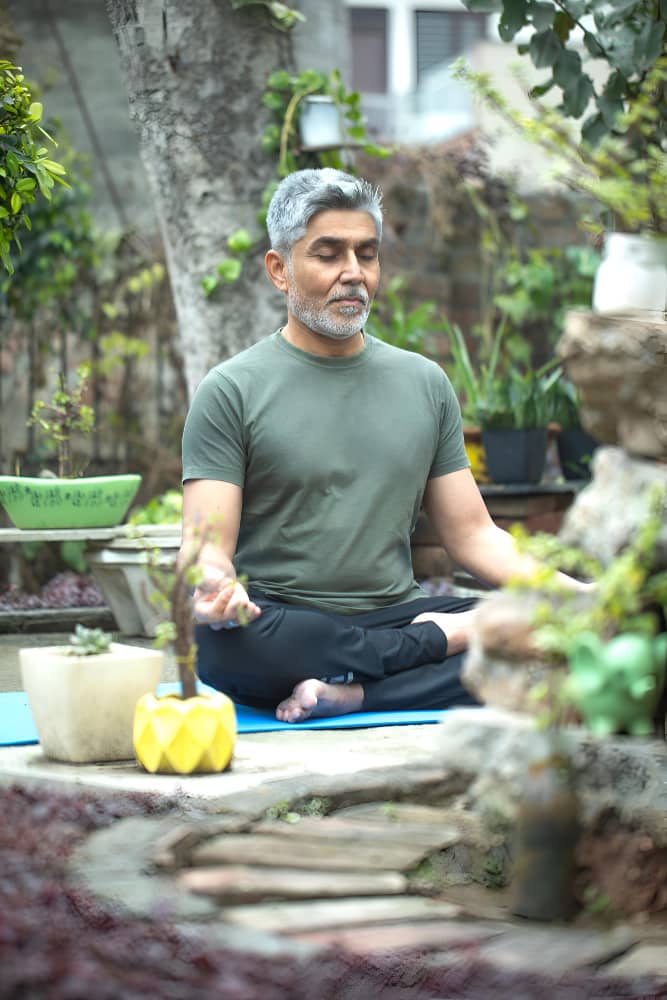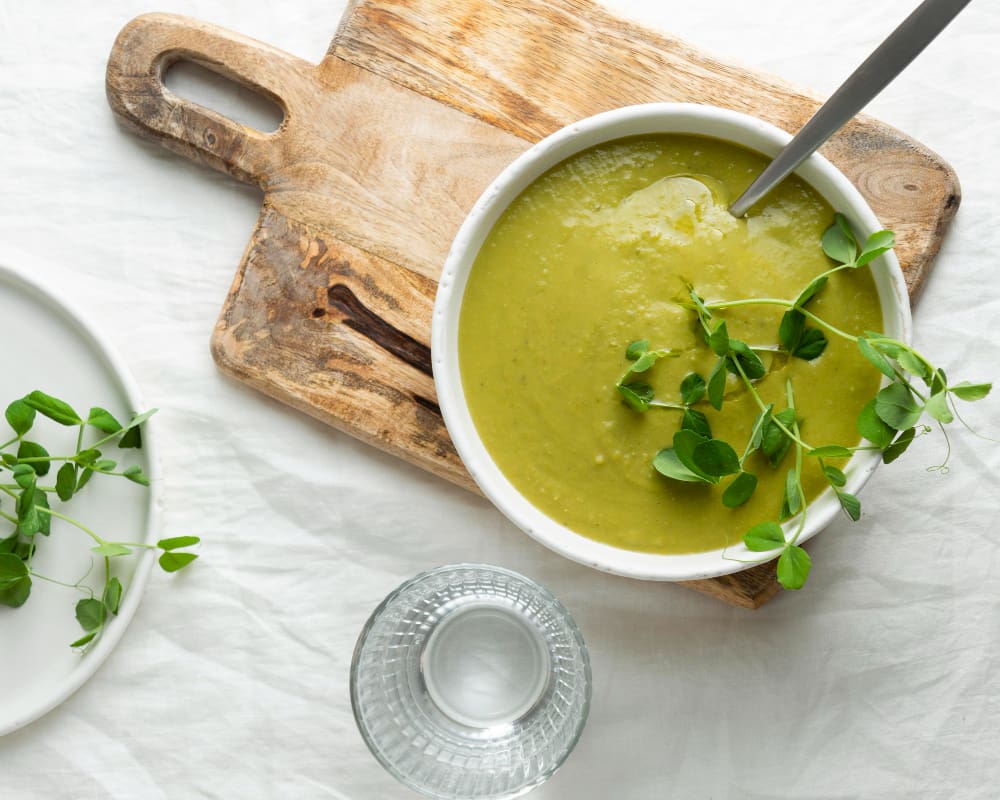Ayurveda for Anxiety: Tips, Herbs & Treatment
Anxiety has become a prevalent concern in modern society, impacting people of all ages and backgrounds. Characterized by feelings of unease, worry, and apprehension, anxiety can disrupt daily life and affect overall well-being. Traditional medicine often addresses symptoms with pharmaceuticals, but Ayurveda offers a holistic approach to managing anxiety, emphasizing balance and harmony within the body and mind.

Understanding Anxiety in Ayurveda
In Ayurveda, anxiety is often linked to an imbalance in the Vata dosha. Vata, composed of air and ether elements, governs movement and communication in the body. When Vata becomes imbalanced due to stress, irregular routines, or overstimulation, it can lead to feelings of fear, restlessness, and anxiety. Therefore, Ayurveda emphasizes the importance of addressing both the symptoms and root causes of anxiety to restore balance and well-being.
Ayurvedic Tips for Managing Anxiety
Here are several practical Ayurvedic tips to help manage anxiety effectively:

1. Establish a Daily Routine (Dinacharya)
A consistent daily routine is crucial in Ayurveda. Dinacharya helps stabilize Vata, promoting calmness and reducing anxiety. Here are some practices to include:
- Wake Up Early: Aim to wake up before sunrise, ideally around 6 AM, to align with nature’s rhythm.
- Regular Meals: Eat meals at the same time each day. Incorporate warm, nourishing foods that are easy to digest.
- Bedtime Routine: Go to bed early to ensure adequate rest, creating a relaxing pre-sleep routine to calm the mind.
2. Mindful Eating Habits
The food we consume significantly influences our mental health. Ayurvedic principles suggest eating warm, grounding foods to calm Vata and support mental well-being. Here are some dietary recommendations:
- Grounding Foods: Incorporate root vegetables, whole grains, and healthy fats (like ghee and avocado) into your diet to stabilize Vata.
- Avoid Stimulants: Limit or eliminate caffeine and sugar, as they can increase anxiety levels.
- Stay Hydrated: Drink warm water or herbal teas throughout the day to support digestion and overall health.
3. Regular Abhyanga (Self-Massage)
Abhyanga, or self-massage with warm oil, is a soothing practice that nourishes the body and calms the nervous system. Here’s how to perform abhyanga:
- Choose the Right Oil: Sesame oil is traditionally used, but you can also opt for calming oils like coconut or almond.
- Warm the Oil: Gently heat the oil before application.
- Massage Your Body: Use long strokes on limbs and circular motions on joints, focusing on the scalp and temples for relaxation.
- Duration: Spend 15-30 minutes on this practice, ideally before showering or going to bed.
4. Incorporate Mindfulness Practices
Mindfulness and meditation are essential for reducing anxiety. Ayurveda emphasizes the importance of calming the mind to restore balance:
- Meditation: Practice meditation daily, focusing on your breath or using guided meditations to cultivate inner peace.
- Breathing Exercises (Pranayama): Techniques such as Nadi Shodhana (alternate nostril breathing) can help balance Vata and promote relaxation.
- Yoga: Engage in gentle yoga practices that focus on breath and movement, fostering a sense of calm and clarity.

Key Ayurvedic Herbs for Anxiety
Ayurveda offers a range of herbs known for their calming and balancing properties. Here are some effective herbs for managing anxiety:
1. Ashwagandha
Benefits: This adaptogenic herb helps the body manage stress and anxiety. It reduces cortisol levels, promoting a sense of calm and stability.
Usage: Typically taken in powder or capsule form, Ashwagandha can be mixed with warm milk or water for optimal absorption.
2. Brahmi
Benefits: Brahmi enhances cognitive function, memory, and mental clarity while also providing calming effects on the nervous system.
Usage: It can be consumed as a powder or in herbal formulations to improve focus and reduce anxiety.
3. Jatamansi
Benefits: Known for its calming properties, Jatamansi is beneficial for reducing restlessness and promoting restful sleep.
Usage: Available in powder or tincture form, Jatamansi can be taken before bedtime to enhance relaxation.
4. Shankhapushpi
Benefits: This herb is celebrated for its ability to soothe the nervous system, reduce anxiety, and improve mental clarity.
Usage: Often taken in powder form mixed with warm water or milk, Shankhapushpi is effective for mental fatigue and stress.
Ayurvedic Treatments for Anxiety Relief
Ayurveda also provides various treatments to help alleviate anxiety. These therapies focus on calming the mind and nurturing the body:

1. Shirodhara
Overview: A traditional Ayurvedic treatment where warm oil is poured over the forehead. This technique is known for its profound relaxing effects.
Benefits: Shirodhara calms the mind, enhances sleep quality, and reduces anxiety levels.
2. Panchakarma
Overview: A cleansing and rejuvenation process that removes toxins from the body, Panchakarma is a comprehensive approach to wellness.
Benefits: It balances the doshas, strengthens the immune system, and promotes mental clarity, making it effective for anxiety relief
3. Aromatherapy
Overview: Essential oils like lavender, chamomile, and sandalwood are used to promote relaxation and reduce anxiety.
Benefits: Incorporating aromatherapy into your daily routine, through diffusers or massage oils, can enhance emotional well-being.
Creating a Personalized Ayurvedic Routine for Anxiety
Since each individual has unique needs, Ayurveda encourages a tailored approach to anxiety management. Consult an Ayurvedic practitioner to create a personalized regimen that addresses your specific symptoms and dosha constitution.
1. Consider Your Dosha
Diet is a crucial component of Ayurvedic management of diabetes. Since diabetes is closely linked to poor digestion and Kapha imbalance, the diet is focused on foods that pacify Kapha and support digestive health.
Understanding your primary dosha can provide insight into your anxiety triggers and tendencies. For instance:
Vata Types: May experience heightened anxiety and restlessness. Focus on grounding practices and nourishing foods.
Pitta Types: Can become irritable under stress. Emphasize cooling herbs and practices to soothe the mind.
Kapha Types: May feel lethargic and unmotivated. Incorporate energizing activities and lighter foods to uplift your mood.
2. Incorporate Ayurvedic Foods
Emphasize a diet that supports your mental health by including:
Warm, Cooked Meals: Favor soups, stews, and cooked grains over raw foods.
Ayurvedic Spices: Include spices like ginger, turmeric, and cinnamon, known for their calming properties.

3. Set a Sleep Routine
Quality sleep is essential for mental health. Create a sleep environment that promotes relaxation by:
Limiting Screen Time: Reduce exposure to screens at least an hour before bedtime.
Creating a Relaxing Atmosphere: Use calming scents and dim lights to signal your body that it’s time to wind down.
How to Use Ayurveda to Build Mental Resilience
There are several Ayurvedic products designed specifically to manage diabetes by incorporating herbal formulations that regulate blood sugar levels and support metabolic health. These products are often taken in conjunction with diet and lifestyle adjustments.
1. Engage in Regular Physical Activity
Regular exercise is vital for both physical and mental health. Aim for:
Gentle Exercises: Practices like yoga, tai chi, or walking help channel Vata energy constructively, promoting relaxation and focus.
2. Practice Gratitude and Positive Thinking
Fostering a positive mindset is essential in managing anxiety. Try:
Gratitude Journaling: Write down things you are grateful for each day to shift focus away from anxiety-inducing thoughts.
Affirmations: Practice daily affirmations that reinforce positive beliefs about yourself and your life.
Conclusion
Ayurveda provides a comprehensive and holistic approach to managing anxiety by addressing the root causes and promoting overall mental well-being. Through lifestyle adjustments, herbal remedies, and mindful practices, individuals can cultivate a calm mind and resilient spirit. By embracing Ayurvedic principles, you not only alleviate anxiety but also enhance your quality of life, creating a harmonious balance between mind, body, and spirit.












